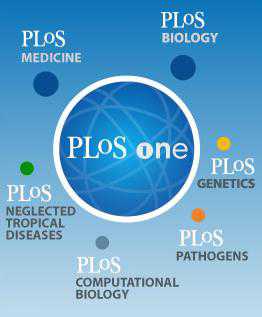PLoS ONE:pten基因缺陷或诱发孤独症
2012-08-14 T.Shen 生物谷
近日,来自加州大学戴维斯分校精神研究所的研究人员发现了一种缺陷性基因如何引发大脑改变,进而导致产生孤独症的非典型社会行为。这就为开发治疗孤独症的药物提供了一个新型的靶点。相关研究成果刊登在了8月10日的国际杂志PLoS One上。 前期研究表明在孤独症儿童中,这种基因是缺陷的,但是其在大脑神经元上的效应却不得而知。这项以小鼠为研究对象的新研究揭示了基因的异常活动可以破坏神经元的能量利用。这种有害
近日,来自加州大学戴维斯分校精神研究所的研究人员发现了一种缺陷性基因如何引发大脑改变,进而导致产生孤独症的非典型社会行为。这就为开发治疗孤独症的药物提供了一个新型的靶点。相关研究成果刊登在了8月10日的国际杂志PLoS One上。
前期研究表明在孤独症儿童中,这种基因是缺陷的,但是其在大脑神经元上的效应却不得而知。这项以小鼠为研究对象的新研究揭示了基因的异常活动可以破坏神经元的能量利用。这种有害的改变加上非社交行为将会延长孤独症患者的反复行为。
许多基因和环境因子都和孤独症有关,但是这项研究指出了某个基因的缺失如何触发神经学行为的发生。理解这种机制将为开发新型药物提供方法。研究者Giulivi表示,这种基因的缺失将会破坏神经元的能量利用。在小鼠实验中,研究者发现名为pten基因如果被修饰就将引发神经元缺少所需的pten蛋白质的量,研究者对小鼠中功能失常的线粒体进行了4-6周的检测。
从20周到29周,线粒体中的DNA损伤以及功能的破坏明显增加了,这段时间内,小鼠开始避免与其同类接触,并且开始其重复性的动作行为。缺乏单独基因的小鼠既不表现出线粒体功能异常也不表现出行为问题。
研究者指出,当pten基因缺陷,其蛋白质可以和与p53蛋白质相互作用来缓冲神经元的能量产生,这种严重的压力会导致线粒体DNA的改变以及小脑、海马体能量产生水平的异常。以前pten的突变被证实和阿尔兹海默症相关。这项新的研究表明,当pten蛋白不充足的时候,其和p53的反应会引发其它蛋白质的缺乏和缺陷,这在孤独症患者中是已经发现的。
相关研究由自比自闭症基因会提供支持。
编译自:Research Shows Gene Defect's Role in Autism-Like Behavior

doi:10.1371/journal.pone.0042504
PMC:
PMID:
Mitochondrial Dysfunction in Pten Haplo-Insufficient Mice with Social Deficits and Repetitive Behavior: Interplay between Pten and p53
Eleonora Napoli1, Catherine Ross-Inta1, Sarah Wong1, Connie Hung1, Yasuko Fujisawa1, Danielle Sakaguchi1, James Angelastro1, Alicja Omanska-Klusek1, Robert Schoenfeld1, Cecilia Giulivi1,2*
Etiology of aberrant social behavior consistently points to a strong polygenetic component involved in fundamental developmental pathways, with the potential of being enhanced by defects in bioenergetics. To this end, the occurrence of social deficits and mitochondrial outcomes were evaluated in conditional Pten (Phosphatase and tensin homolog) haplo-insufficient mice, in which only one allele was selectively knocked-out in neural tissues. Pten mutations have been linked to Alzheimer's disease and syndromic autism spectrum disorders, among others. By 4–6 weeks of age, Pten insufficiency resulted in the increase of several mitochondrial Complex activities (II–III, IV and V) not accompanied by increases in mitochondrial mass, consistent with an activation of the PI3K/Akt pathway, of which Pten is a negative modulator. At 8–13 weeks of age, Pten haplo-insufficient mice did not show significant behavioral abnormalities or changes in mitochondrial outcomes, but by 20–29 weeks, they displayed aberrant social behavior (social avoidance, failure to recognize familiar mouse, and repetitive self-grooming), macrocephaly, increased oxidative stress, decreased cytochrome c oxidase (CCO) activity (50%) and increased mtDNA deletions in cerebellum and hippocampus. Mitochondrial dysfunction was the result of a downregulation of p53-signaling pathway evaluated by lower protein expression of p21 (65% of controls) and the CCO chaperone SCO2 (47% of controls), two p53-downstream targets. This mechanism was confirmed in Pten-deficient striatal neurons and, HCT 116 cells with different p53 gene dosage. These results suggest a unique pathogenic mechanism of the Pten-p53 axis in mice with aberrant social behavior: loss of Pten (via p53) impairs mitochondrial function elicited by an early defective assembly of CCO and later enhanced by the accumulation of mtDNA deletions. Consistent with our results, (i) SCO2 deficiency and/or CCO activity defects have been reported in patients with learning disabilities including autism and (ii) mutated proteins in ASD have been found associated with p53-signaling pathways.
本网站所有内容来源注明为“梅斯医学”或“MedSci原创”的文字、图片和音视频资料,版权均属于梅斯医学所有。非经授权,任何媒体、网站或个人不得转载,授权转载时须注明来源为“梅斯医学”。其它来源的文章系转载文章,或“梅斯号”自媒体发布的文章,仅系出于传递更多信息之目的,本站仅负责审核内容合规,其内容不代表本站立场,本站不负责内容的准确性和版权。如果存在侵权、或不希望被转载的媒体或个人可与我们联系,我们将立即进行删除处理。
在此留言








#Plos one#
70
#PTEN#
58
#基因缺陷#
72